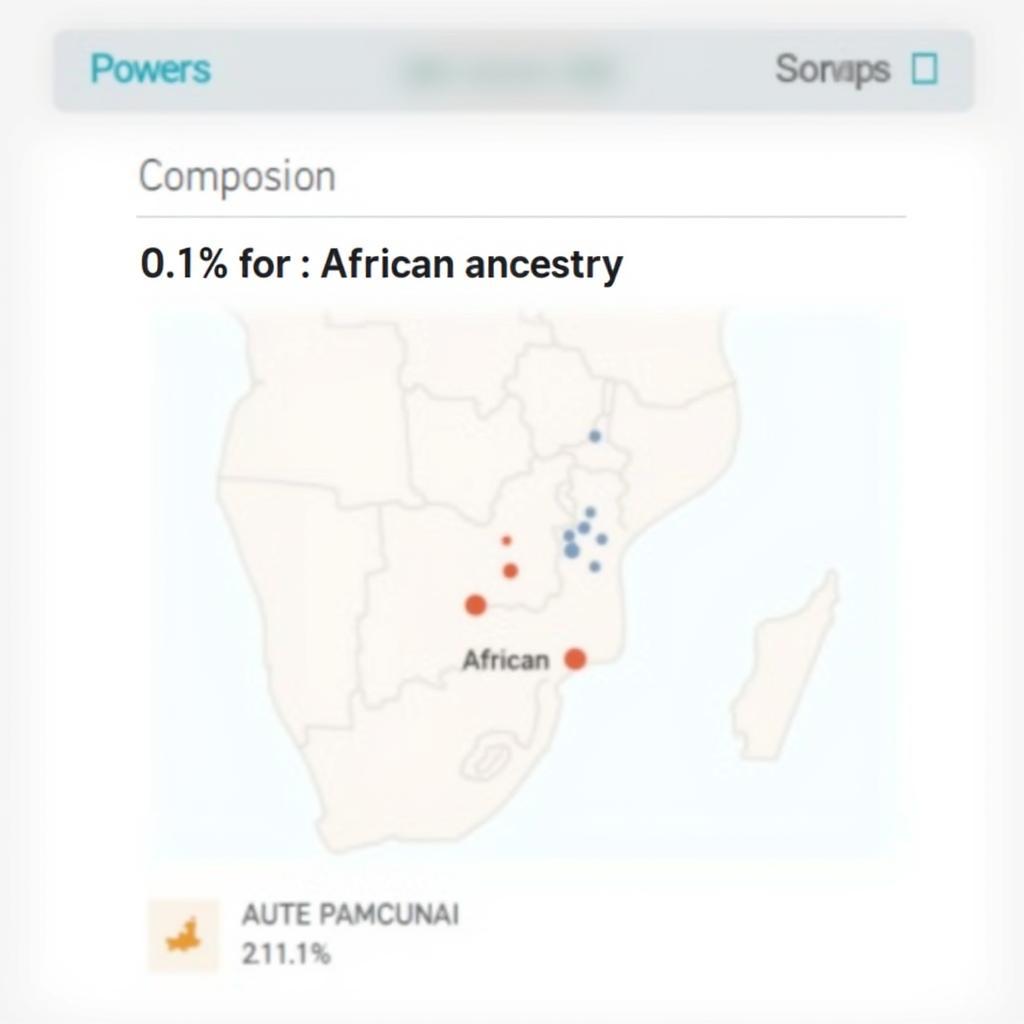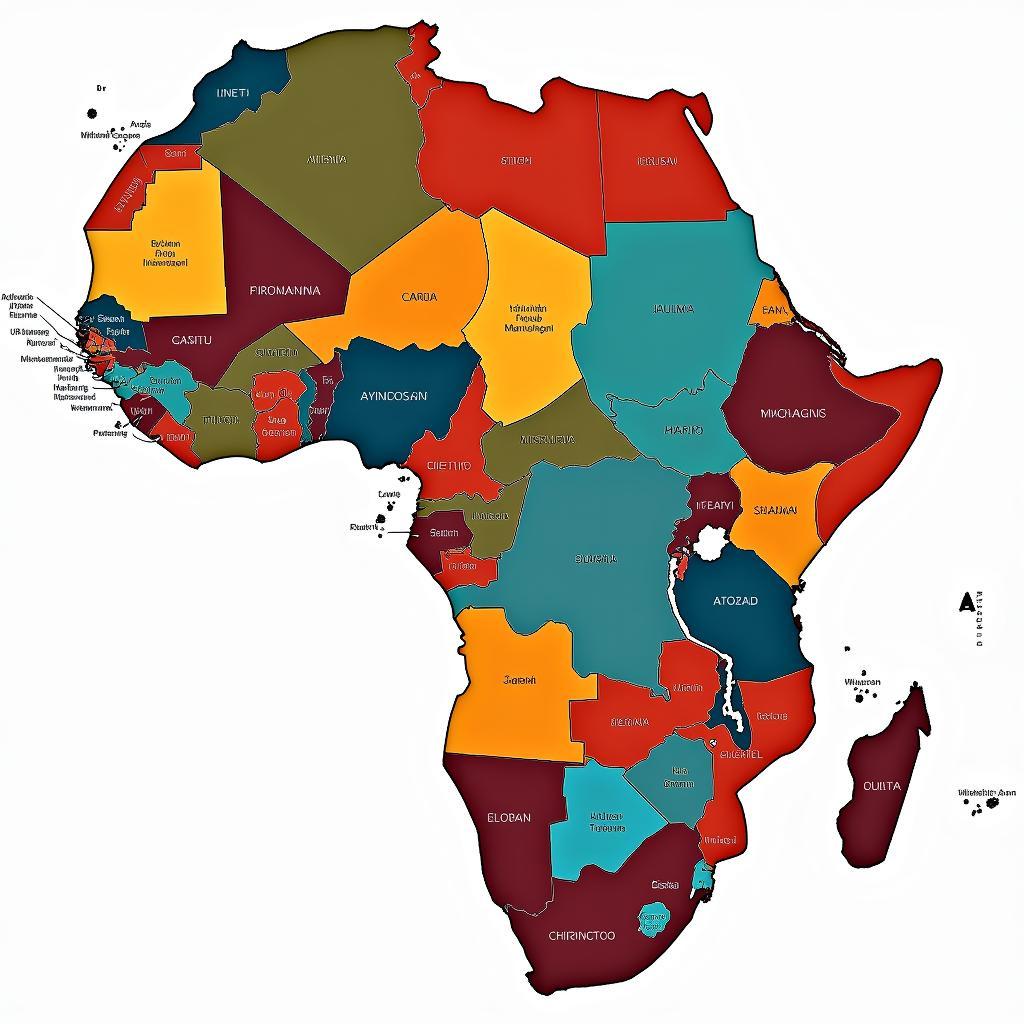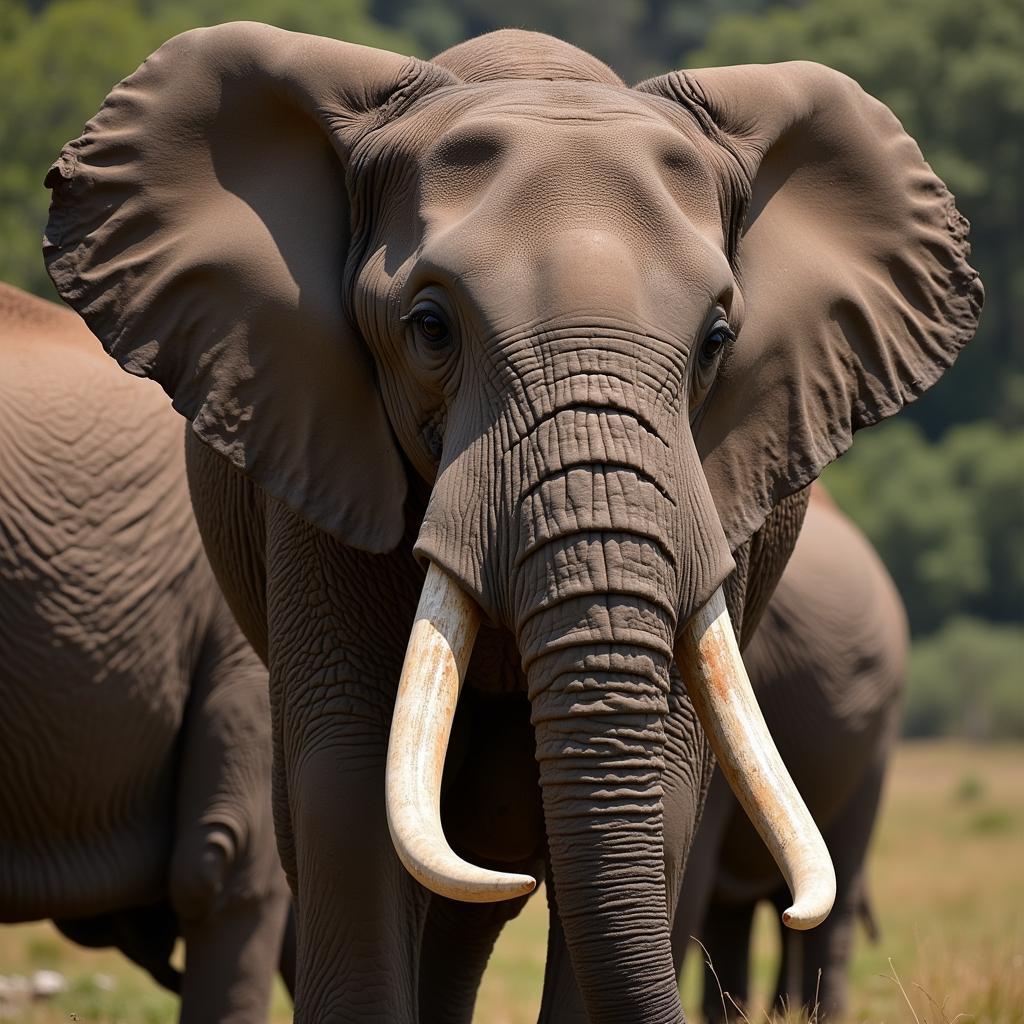Unraveling Your Ancestry: Understanding 23andme 0.1% African
23andme 0.1% African results can spark curiosity and a desire to delve deeper into one’s heritage. What does this small percentage mean, and how can we understand it within the broader context of African history and genetic diversity? This article will explore the complexities of interpreting such results, delving into the science behind DNA ancestry testing, the rich tapestry of African genetic diversity, and the limitations of these tests in capturing the full story of one’s ancestry.
Decoding the 0.1%: What Does a Small African Ancestry Percentage on 23andme Mean?
A 23andme result showing 0.1% African ancestry often indicates a trace connection to the African continent, likely several generations back. It’s crucial to remember that DNA testing relies on comparing your DNA to reference populations, which are constantly being updated and refined. This small percentage may represent a genuine connection, but it could also be statistical noise, or a reflection of shared ancient ancestry between populations. Don’t jump to conclusions; further investigation is often needed.
It’s important to remember that Africa is not a monolithic entity. It’s a vast continent with incredible genetic diversity, perhaps the highest in the world. So, even a small percentage can connect you to a specific region or ethnic group within Africa.
 23andme 0.1% African DNA Results Example
23andme 0.1% African DNA Results Example
Exploring the Rich Tapestry of African Genetic Diversity
Africa is the cradle of humankind, and its genetic diversity reflects millennia of migrations, intermingling, and adaptations. This diversity makes tracing ancestry within Africa particularly complex. Current DNA databases may not fully represent the breadth of this diversity, leading to less precise results for individuals with African heritage.
Understanding the limitations of these tests is key to interpreting your results accurately. While a 0.1% result may seem insignificant, it’s a starting point for a fascinating journey of discovery.
The Challenges of Pinpointing Specific African Regions with Low Percentages
Pinpointing a specific region or ethnic group within Africa based on a 0.1% result is challenging. The limited representation of African populations in reference databases makes it difficult to provide precise regional breakdowns. However, as DNA technology advances and databases expand, the accuracy and detail of these results will likely improve.
 Map Illustrating African Genetic Diversity
Map Illustrating African Genetic Diversity
Beyond the Percentages: Delving Deeper into Your African Ancestry
Don’t let a small percentage discourage you. Combining your DNA results with genealogical research, including family history interviews and historical records, can paint a more complete picture of your ancestry.
Consider uploading your raw DNA data to other ancestry databases like GEDmatch or MyHeritage. These platforms often have different reference populations and may provide additional insights.
Utilizing Genealogical Resources to Supplement DNA Results
Genealogical research can help you uncover the stories behind your DNA results. Exploring historical records, such as census data, immigration documents, and birth certificates, can provide valuable clues about your ancestors’ origins and migrations.
“Genealogy provides the context for your DNA results. It’s the bridge between your genetic data and the stories of your ancestors,” says Dr. Anika Olumide, a renowned geneticist specializing in African populations.
Conclusion: 23andme 0.1% African – A Starting Point, Not the End of the Story
A 23andme result of 0.1% African ancestry offers a glimpse into your connection to the African continent. While a small percentage, it represents a potential link to a rich and diverse heritage. Remember that DNA testing is just one tool in the ancestry toolkit. Combine it with genealogical research and a healthy dose of curiosity to unlock the full story of your unique ancestral journey. Understanding the limitations of DNA testing, especially concerning African ancestry, allows for a more nuanced interpretation of your results. 23andme 0.1% African is not a definitive answer, but a fascinating starting point for exploration.
FAQ
- What does 0.1% African ancestry on 23andme actually mean?
It indicates a trace connection to the African continent, possibly many generations back.
- Is 0.1% African ancestry significant?
While small, it can be a starting point for further genealogical investigation.
- Can 23andme pinpoint the specific African region with a 0.1% result?
It’s challenging with current technology due to the limited representation of African populations in reference databases.
- How can I learn more about my African ancestry?
Combine your DNA results with genealogical research, explore historical records, and consider uploading your raw DNA data to other databases.
- Why is African genetic diversity so complex?
Africa is the cradle of humankind, and its genetic diversity reflects millennia of migrations, intermingling, and adaptations.
- Can the 0.1% African ancestry be a mistake?
It could be statistical noise or reflect shared ancient ancestry between populations. Further research is always recommended.
- What other resources are available for exploring African ancestry?
Historical societies, genealogical libraries, and online forums specializing in African ancestry research.
“Tracing African ancestry requires patience and a multi-faceted approach. DNA is just one piece of the puzzle,” adds Dr. Kwame Asante, a historian specializing in African diaspora studies.
For further assistance regarding your African ancestry research, please contact us. Phone: +255768904061, Email: kaka.mag@gmail.com Or visit us at: Mbarali DC Mawindi, Kangaga, Tanzania. We have a 24/7 customer service team.


